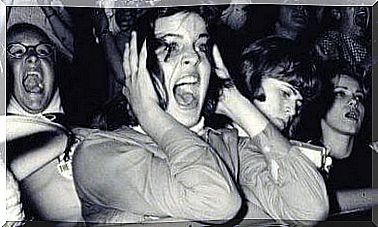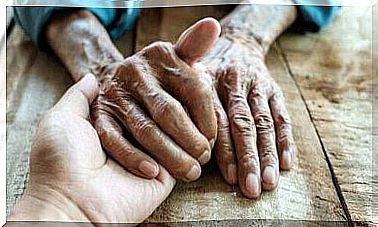The 4 Stages Of An Emotional Crisis

The stages of an emotional crisis are normal stages within the rebalancing process. A critical situation is not resolved overnight, as it involves going through a series of stages before reaching a complete resolution.
Each of the stages of an emotional crisis encompasses a set of responses that, at first, despite not being the most adequate, correspond to a normal way of reacting. In this way, we avoid forcing situations or reactions, allowing fluidity and naturalness when our intervention is not necessary.
In this type of crisis, there is a great affectation that involves not only emotions, but also cognition and behavior. Under these conditions, it is difficult for a person to think clearly, find solutions or help others. Next, we’ll look at the stages of an emotional crisis.

1. Paralysis, the first stage of an emotional crisis
The main characteristic of a crisis is that it represents a situation in which an unexpected change takes place that makes the future unstable or uncertain. In the case of emotional crises, there is one or several realities that cause a subjective shock and momentarily overload the ability to react.
The first stage of an emotional crisis is paralysis. When it occurs, this reaction is characterized as a healthy defense mechanism. In nature, all animals are quiet when they feel they are in danger, especially if they are facing something unknown. Paralysis is a form of disorientation, mainly caused by the suddenness of a situation.
2. Uncertainty
After a first moment of shock, what follows is a state of uncertainty in which anguish and anxiety are present. The person begins to understand what is happening, but ends up paying more attention to the size of the threat than to the tools to address and process it.
At this point, confusional anxiety arises . This type of anxiety is directly linked to feelings of disorientation, difficulty in expressing emotions, disordered ideas and limited consciousness. The feeling of being lost and at the same time threatened by reality prevails.
3. Intrusion
Among the stages of an emotional crisis, the intrusion phase does not always occur, although it is observed in many cases. This experience occurs mainly in cases of more serious or fatal crises and concerns the emergence of irrational fears and exacerbation of the feeling of anguish.
What happens at this stage is that the person withdraws and does not act, thinking excessively about the crisis they are experiencing. From there, ideas arise that distort the dimensions of future dangers, carry tragic images and cause strong derogatory feelings.
So-called intrusive thoughts arise. They are images or ideas that appear spontaneously or involuntarily in our minds. These are unpleasant and terrifying thoughts that we try to push away, without success. This is the most serious stage within the emotional crisis management process.

4. Elaboration and resolution
It is very difficult to get out of an emotional crisis without the help of some external fact. This factor, which marks the transition from a state of shock to a state where it is possible to deal with what has happened, can sometimes be found in the form of a friend, a book, advice, a therapist, etc.
There needs to be a way to externalize the malaise experienced, and this can occur through the word. The word can be spoken or written, and is a mechanism for starting to sort out ideas, emotions and perceptions. Crafting a narrative from the situation experienced is fundamental to taking control and achieving understanding.
It is necessary to make room for the pain in order to re-establish consciousness. When this happens, it is possible to develop a more realistic idea of the situation, as well as it is possible to identify personal tools that can help in the approach. After this elaboration comes resolution, which is nothing more than the recovery of a healthy emotional state.
In many cases, without expert help, a person can be stuck for a long time at some stage of the emotional crisis. Going to a psychologist in this type of situation is more than pertinent, as it represents a valuable support to conduct the process faster or in a healthier way.









